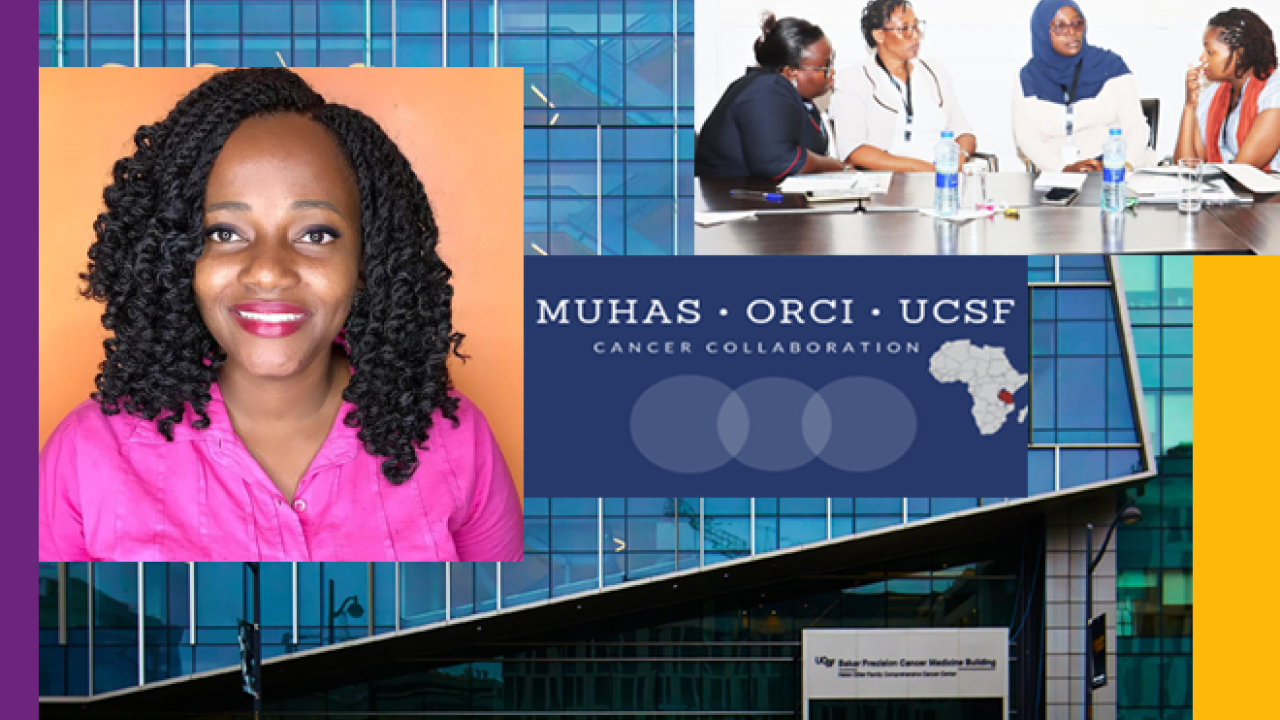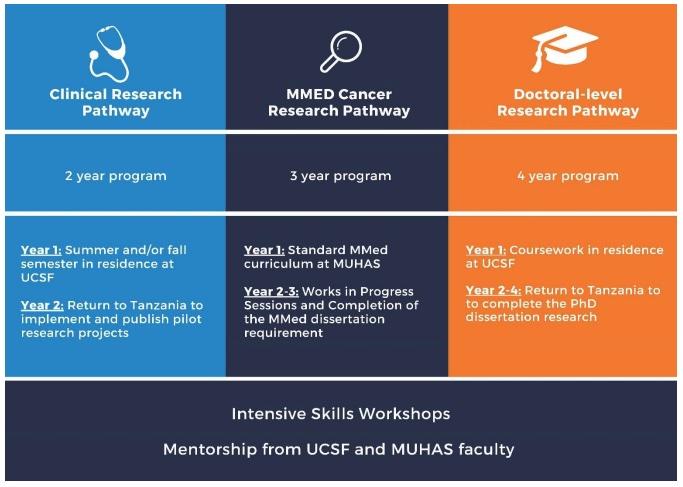Dr. Nyagabona shared her career path and the significance of the UCSF Global Cancer Program's partnership with Muhimbili University of Health and Allied Sciences (MUHAS) in Tanzania on shaping her future plans.
 A Future Oncology Leader's Journey
A Future Oncology Leader's Journey
What inspired you to pursue medicine / oncology?
During my medical school and internship years, I encountered patients who were facing immense despair, abandonment, and stigma from their communities and even some healthcare providers. Witnessing their struggles ignited a strong desire within me to be part of the helping team. I wanted to make a meaningful difference in their lives by providing compassionate care and support throughout their cancer journey.
Why did you decide to apply to be a Clinical Research Coordinator with the MUHAS-ORCI-UCSF Cancer Collaboration?
After my master's in medicine (Mmed) - Clinical Oncology, I saw the role of a Clinical Research Coordinator as an excellent opportunity to expand my research skills and gain valuable experience before fully committing to clinical or training work with the Ministry of Health (MOH). Moreover, having previously interacted with the MUHAS-ORCI-UCSF Cancer collaboration, I was already familiar with their dedication to improving cancer care in Tanzania, which further motivated me to apply for the position.

How did you find out about that opportunity?
I discovered the opportunity through an advert posted on the MUHAS website. Although it wasn't something I had initially considered as my career path was to go back to MOH, my positive prior experience with the collaboration encouraged me to take a leap and apply for this enriching role.
What was your experience as a CRC?
Being a Clinical Research Coordinator was a valuable and eye-opening experience for me. It provided me with exposure to working with diverse individuals, each bringing different expertise, backgrounds, and research interests. Collaborating with this team allowed me to contribute to the advancement of cancer research and patient care in Tanzania.